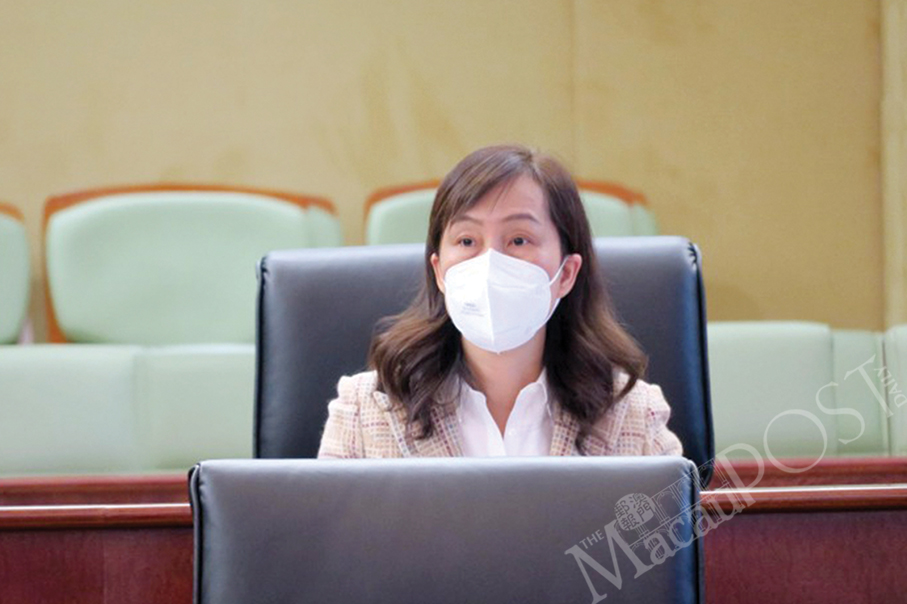Secretary for Social Affairs and Culture Elsie Ao Ieong U said in a plenary session in the hemicycle of the local legislature yesterday that if the local higher education institutions do not continue to improve their teaching quality, the advantages of local higher education might be lost as the effect brought about by the COVID-19 pandemic subsides.
During yesterday’s Q&A plenary session, some lawmakers expressed concern about the future development of Macau’s higher education.
Ao Ieong acknowledged that the number of local students enrolled in local higher education institutions and those from outside Macau has increased due to COVID-19 travel restrictions in recent years so that students from Macau and the mainland “cannot go abroad for further studies”, Ao Ieong said, adding that this was part of the reason why they decided to stay in or come to Macau.
Ao Ieong said that this advantage might disappear as the pandemic “gradually passes” and that if local higher education institutions want to maintain their attractiveness, “they not only have to maintain and improve the quality of teaching, but also keep striding forward and improve it,” Ao Ieong said.
Ao Ieong stressed that local higher education institutions must improve the quality of teaching when increasing enrolment, “One thing I have always insisted on is that the teaching quality achieved must be guaranteed and constantly improved, otherwise Macau’s higher education institutions will lose their competitiveness.”
Ao Ieong also acknowledged the fact that there is not enough space for higher education to further develop in Macau, saying she hoped that the mainland would “give more support to the development of higher education in Macau”.
Ao Ieong pointed out that the number of registered students increased by 45 percent from over 34,000 in the 2018/2019 academic year to over 49,000 in the 2022/2023 academic year, while the proportion of postgraduate students increased from 25.5 percent to 36.5 percent over the same period.
Macau confirmed its first COVID-19 case in January 2020.
Ao Ieong said that the public universities must guarantee local students’ enrolment, using the University of Macau (UM) as an example, where half of its operational costs are borne by its own income, while the other half comes from public funds.
Regarding the official enrolment ratio at UM, Ao Ieong said that local students should account for 70 percent, while non-local students should make up 30 percent, adding that government funding for private universities will be based on the number of local students at the university, while research projects and equipment renewal will be counted separately.
Ao Ieong also said that the teaching and research standards of Macau’s higher education institutions were gradually gaining regional and international recognition as they continued to expand, with some ranking high in international university and subject rankings, noting that the University of Macau and the Macau University of Science and Technology (MUST) were both ranked in the 201-250 range in the world in the latest Times Higher Education 2023 rankings.
In addition, Ao Ieong noted that the government is trying to train more nursing staff for local care homes, as the local unemployment rate had been rising during the early stages of the COVID-19 pandemic outbreak, however, Ao Ieong described the attempt as a “failure’, as local residents were not willing to work in such nursing services.
Ao Ieong said the government would continue to encourage students to study nursing-related professions by increasing the number of places in nursing schools and providing special grants.

Secretary for Social Affairs and Culture Elsie Ao Ieong U addresses a Q&A plenary session yesterday in the Legislative Assembly’s (AL) hemicycle.
– Photo courtesy of TDM






